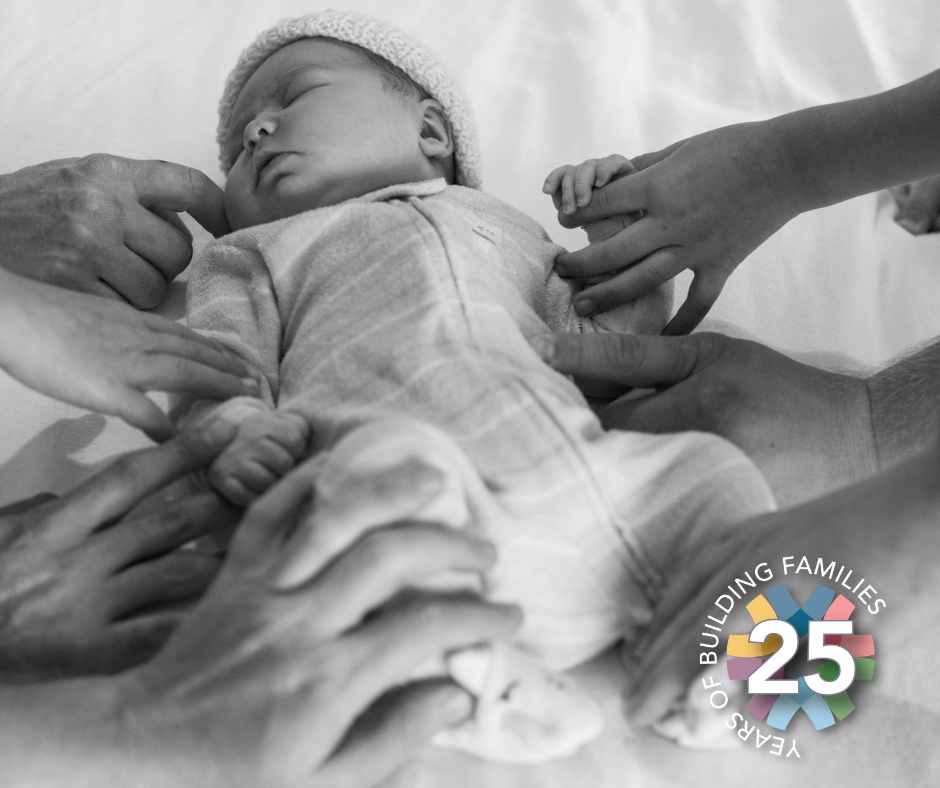
Dr. Anate Brauer of Shady Grove Fertility addresses your questions around becoming a surrogate mother and if she shares DNA or blood with the baby she carries. In other words, is she related in any way to the surrogate baby?
Gestational Surrogacy and DNA-Sharing Between Surrogate Mother and Baby
Modern families are, in many ways, modern miracles. It’s only in recent decades that fertility treatments allow couples, single-by-choice men and women, gay dads, and others who want to become parents with the help of a third party.
In some cases, this means utilizing an egg or sperm donor, who is someone that can provide genetic material if it is not otherwise available from the intended mother or father. Other situations require a surrogate, or gestational carrier, who is someone that can carry the baby for the intended parents.
Does a surrogate mother share her DNA with the baby?
This is a fairly common question and the answer is no. In a compensated surrogacy arrangement with a gestational carrier, the surrogate mother does not share blood or DNA with the surrogate baby. The baby’s DNA comes from the intended mother’s egg, or from an egg donor, and from the intended father’s sperm, or from a sperm donor.
Learn More About SurrogacyIs a Surrogate Mother Related to the Child?
In compensated surrogacy arrangements in the United States, a previously fertilized embryo from the intended parents is transferred to a surrogate. Still, some wonder if the surrogate’s blood passes through the heart of the fetus and, if so, does that mean she is, in turn, passing on her DNA.
And this question remains: is a surrogate mother related to the child?
The answer is no: the baby has its own blood flowing through its veins, with the DNA of the egg fertilized by the sperm it was created from.
After the embryo is successfully implanted in the gestational carrier’s uterus, it continues to grow there during a successful pregnancy. Also developing in the uterus is the placenta. This is an incredibly important part of the pregnancy because it not only nourishes the growing baby, but it also functions as a filter. It only allows certain things to cross through it, acting as a gatekeeper to prevent blood as well as DNA from passing between the baby and surrogate.
Studies now show that cells actually can cross the placental barrier and introduce the surrogate’s DNA to the baby, or vice versa. But is it enough to impact the baby’s genetic makeup? Will the baby inherit the surrogate mother’s characteristics? Absolutely not. There is not nearly enough DNA passing through the placenta to impact the child; the placenta is a truly effective filter.
What About Traditional Surrogacy? Does the Surrogate Mother Share Blood with the Baby?
In rare instances of traditional surrogacy, the surrogate mother does share DNA with the baby. Using traditional surrogacy, the baby is either conceived traditionally or the surrogate undergoes artificial insemination. In these situations, the surrogate’s egg is used and, therefore, the child would have half of the surrogate’s DNA. This is what leads people to wonder if surrogate mothers have a genetic link to the baby. If the surrogate is genetically related to the baby through her egg, it can complicate both the legal and ethical situation. Due to these ramifications, traditional surrogacy is a rare practice.
Nature and technology continue to work together in unique ways, and family building is no exception. Learn more about the process of becoming a surrogate mother.
Are you a woman who enjoyed a healthy and successful pregnancy? Do you have friends or family who have suffered from infertility or need assistance from someone else to build their family? Have you ever considered the role you could play in helping someone else build their family – as a surrogate? We would love to talk with you.